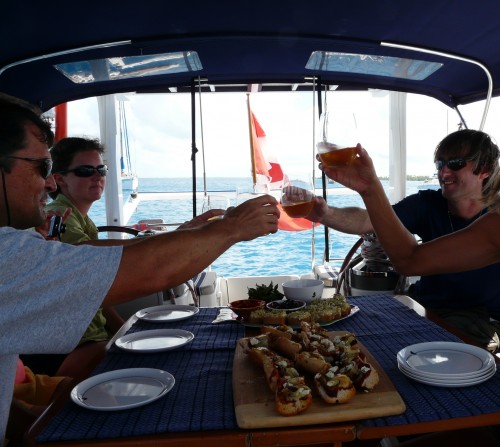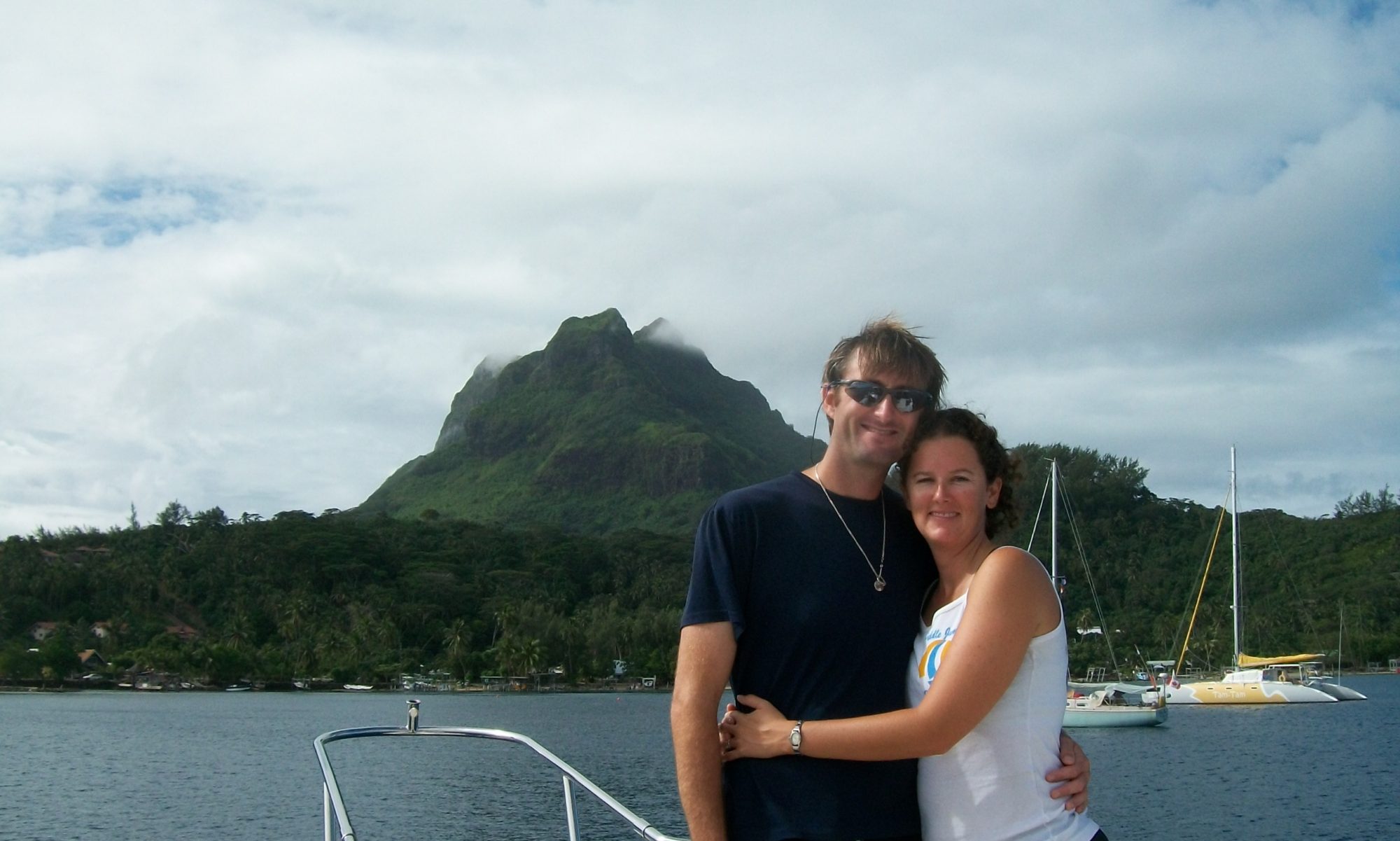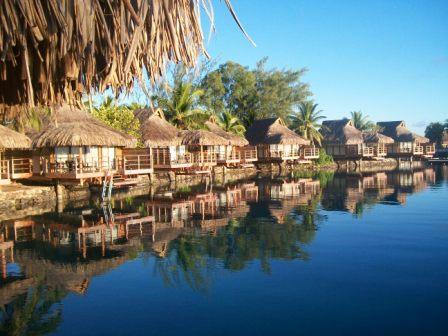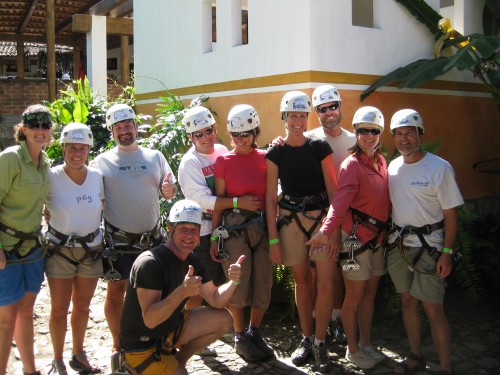Enroute Coff’s Harbour, AU
As many of you know the main question we get when it come to how get started as volunteer crew is how to deal with seasickness.
The second most often asked question is similar to the one Mike asked us a few weeks ago:
“All signs in my life point towards the adventure you two have chosen. My top two bucket list items right now are live on a boat and sail around the world. I thought these would be goals for much (much) later in life but as a 27 year old I think the time is now.
Do you have any advice for savings needed for say, 1 year of volunteer sailing?”
Well, yes, yes we do…
I know what you’re looking for is an exact number but it’s really not as easy as simply giving you the amount we used. Your circumstances might be different than ours. For example, you may not be 2 people like us. 
ALSO, the disclaimer: We are not providing you legal or financial advice as we are not lawyers or accountants and we don’t know all the intimate details of your (or anyone else who reads this article’s) life. We are giving our personal thoughts based on our own life experience. Your life experience may differ, therein the adventure of living.
For example, we retain a really good accountant to make sure we’re doing things right.
So what we can do is ask you some questions and let your answers help you determine what you need:
…and you write the forward last right? Well, after writing the below the short of our philosophy is this:
We budget to travel by normal (paid) means and when we get a ride on a boat we consider it a “sweet deal” we hadn’t planned on. After we leave the boat we revise our budget and extend out our savings into more days travelling. This has worked very well and allowed us to stay out much longer than the overwhelming majority of our fellow travelers.
On to the questions –
How much survival cash you want to carry?
Survival cash is a wad of US cash – $20s and $50s you have hidden on your person that you never, ever, EVER touch except when you are completely screwed. It should be enough to get you a taxi to the nearest city, a place to sleep for the night, some food and a long distance phone call to family or whoever else would help you should the worst happen. This way if, God forbid, the worst case scenario comes to pass you have ready access to some money because not everywhere in the world has ATMs.
We’ve used survival cash twice in our travels. First time was to get off a boat that ended up being a bad call and the other time was when we were on the island of Niue and discovered that their bank (yes, the one in the whole country…we checked) would not accept our cards, leaving us without an ability to get money or even use our credit cards! We almost never touch our survival cash but the times we have were make or break situations and there is no way we would travel without it.
To give you an idea, we carry a couple hundred bucks in greenbacks just in case (Say what you want about the US economy, greenbacks still always spend.)
Where are you targeting to go & how much is the accommodation?
“What!?” you’re saying “I wanna live on the boat!” Yes, yes we know. But captains smell desperation and desperation smells like “don’t let me on your boat because I’m a vagrant.” Greg spent 4 months in La Cruz de Huanacaxtle, Mexico looking for a ship. Because we weren’t desperate it became obvious to the owners we had the resources to travel; we just preferred to sail. We had accepted an offer to crew after 3 months but the owner asked us to live on land until we left because it would be “crowded.” We lived onboard for about another 4 months traveling to Tahiti then lived in Papeete for a few weeks while the next ship we arranged was enroute to pick us up. We lived onboard for about 2 months then disembarked and flew to New Zealand. At that point we were ahead of the fleet and didn’t find a boat for about 5 months or so. To be fair at that point we weren’t looking very hard and had other things on our mind (Best man, audits, and visiting moms to name a few)
Mexico was dirt cheap to live in. We think it was less than $100 / week for our own room (It was a while ago and we’re looking for the old receipts ;-).
Tahiti, not so much.
Tonga and New Zealand were OK, but not cheap. Point being we had the ability to live on land. Plan for that.
A quick internet search on hotels and hostels in your target area will give you an idea.
Do you have enough money to get home?
“What if we don’t find a boat when we get to Tahiti?” Was a question we asked ourselves. The answer was “Well, then we’ll buy a plane ticket to Australia, which is where we wanted to go in the first place.” We didn’t sail because we had to; we did it because we wanted to. If you budget to fly and end up sailing you’ll have more money in the bank. Also, this way if you need to get home, you aren’t stuck. This is clutch.
Just google flights from where you’re looking to go to get an estimate
How much will you need to restart your life?
The official US government line here is “can you survive 3-6 months on your savings” and we’re using that. Our plan is to return to the states and begin working again. What’s your life restart strategy? You gonna just stay out forever? (some do) Or after a year, which is the time frame you gave that was also our initial estimate 3 years ago (hint – plans change) do you plan to return home? Do you need to find a job? Start a business? School? Live with your parents / friends at first or do you own a home or will you need to immediately shell out for rent?
This is money you stockpile and never touch until you return to your home and begin to restart your life. May we suggest looking into a low risk / no risk 1 year investment strategy so it will be there waiting for you when you get home?
How much will you spend on food & drink?
When you’re volunteer crewing it’s pretty typical that you will split the food costs among everyone. It’s tough to estimate but budget for groceries as if you were eating particularly well because we’ve heard more than one Captain complain about a crew who are only willing to pay for ramen. Cruisers eat well, not insane but well, and they expect you to carry your share of the groceries. (both physically & economically)
 Also, drinking habits have sunk many a sailor’s budget so be honest with yourself on how much you plan to drink when you’re ashore.
Also, drinking habits have sunk many a sailor’s budget so be honest with yourself on how much you plan to drink when you’re ashore.
Obviously, this again varies wildly depending on location – In Mexico a night out with all you can eat and drink may run you $20 US and that’s a generous estimate. Provisions for a week of groceries are basically cheaper than walmart prices. In Australia you can blow through several hundred dollars a night at the pub without realizing it and a 12 pack of soda at the grocery store costs more than a 12 pack of beer (that isn’t an exaggeration by the way).
Ask friends that have been to where you want to go or ask us and we’ll attempt to connect you to someone who can give you the downlow.
Do you want to do ‘fun stuff’?
Going for scuba dives, zip lining, renting scooters on tropical islands, surf lessons…that kind of stuff. It depends on what you’re into but have a budget for it.
again, the googles can help you budget this in your target area.
What are your ‘base monthly expenses’?
What are your monthly bills without counting food and assuming you’re homeless? Don’t count electricity and cable (unless you plan on retaining a residence. Also, we’d suggest putting your cell phone on hold) but add in college debt, car payments, credit card payments, any medical / life / etc insurance you pay, all that stuff. Add up the total. Now multiply that by how many months you want to travel. Those are your bills and unless you’re choosing to skip out on them (not a decision to make lightly) it is the amount of money you’ll need to hold in reserve to pay them off while you’re gone.
This is where we say one of the most powerful things you can do for yourself before leaving is to pay off as much debt as possible. We’re debt free, it was darn hard to do but we’ll tell you what: there isn’t ANYONE reaching into our bank account every month and that has saved us a TON of money.
Also note your “base monthly expenses” also get added in when calculating your “life restart money.”
Travel insurance?
To get or not to get is a separate topic entirely. The first half of our trip we didn’t have it, the second half we figured out our US medical insurance didn’t cover us in Asia and the travel insurance was cheaper anyway. From the money side, add in the fees if you choose to buy it.
if you want some recommendations on affordable options, let us know.
Are you willing earn money?
It looks funny but it’ll buy you some really good beer in Tonga!
In Australia, it took us an average of 1 week to find easy jobs that paid on average $20 US an hour. We worked at a ski resort, tended bar in the outback and worked at a racing stable. Food & Accommodation was often provided and we saved like fiends and used that money to take the train across Russia. If you’re interested, check out the work-holiday visa Australia offers. Assuming you’re young enough, there are many countries that offer this program (Germany and France are among them) but Aussies speak English (mostly
This point alone is the strongest incentive for you to travel right now. You see, the easiest working visas to get around the world are work-holiday visas. For example, in New Zealand it was free, in Australia it was about $350 US both are online applications and they allow you to work in the country for a year. The kicker is this: you can only apply if you’re under 31 years of age. Greg applied about a month before his 31st birthday and it was one of the smartest things we did while travelling. We lived in Australia and left the country with enough money that we had to choose:
Do we travel for another year with the money we made or do we go home with a new down payment for a house? Not a small house either.
Seriously, it was that much. We had to look at our budget for a few days before it got though our heads how much was stockpiled while we were just goofing off in Australia.
We can connect you with a recruiter in northern Australia if you’re interested.
You could also look at working on a mega-yacht (or even a sail boat like we did) for a season.
Also, any sources of passive income or active income you intend to maintain would go here.
So in the end it looks like this:
+Survival cash
+ Accommodation
+ flights
+ life restart money
+ groceries & drinks
+ fun money
+ Base monthly expenses
+ travel insurance
– money earned
= estimated travel money
This should give you a good base line but be aware both good and bad things happen. For example we did not expect to make any profit in Australia but then we didn’t expect to get audited either. Our final thought is simply we always played it safe with money and never regretted it.
Greg and Tiffany are traveling around the world on sailing yachts and keep a video blog of their (mis)adventures. If sailing to Tahiti on a 44 ft sailboat, 3-day delays for wine tastings, getting pooped on by seagulls, opening coconuts with dull machetes, sailing past tornadoes and ukulele Christmas carols are for you, then check them out atwww.CoastGuardCouple.com!





Hello coastguard couple!
I just stumbled on your blog and I must stay it is quite helpful!
I’ve always wanted to lead the life you two are living and now that I’m abroad I feel it is the opportune time!
Thank-you very much for the advice you have shared, it is a great knowledge base to start from when looking for my first crew position; with zero experience.
I’ve been in Australia for a month now stay with family but on reading your note about how much you managed to make working in the Northern Territory I am quite interested to know more! I have a working holiday visa and was planning on picking up some work somewhere along my travels to supplement further traveling.
Could you offer any advice for a solo female (both onland and at sea)? You mentioned you new a recruiter in the Northern Territory?
Thank-you very much
and thank-you for this blog.
Best,
Emilea
Sure Emilea,
Someone else just asked that so I’ll just re-forward the email I sent to him.
Check your email!
Coastguard Couple! Thank you for this information. I’m feeling inspired to get over to Australia and work for a year. I’m a single male, US citizen, 27 years old and ready for adventure. Could you also forward me the info about the recruiter in the Northern Territory?
Best to you,
Sean
Sean,
We actually did an article on how we got every job we had in Australia, including the recruiter we found in Cairns. here’s the link for that article:
https://coastguardcouple.com/2013/07/29/backpacker-jobs-how-to/
give that a read an let us know should you have any questions!
If what you said about Australia is true I am definitely interested in talking to a recruiter! One day I want to buy my own boat and sail across the world, but for now I would like to get as much experience possible, and volunteering sounds like the best way to do it! If you could put me in touch or give any further info I would greatly appreciate it. Thanks so much for the assistance and the good info. Wish you the best!
Rich Murray
Sure Rich, we can’t guarantee anything and we can connect you with the resources we used.
Check out our races and rallies page
If you have questions after that then shoot us a line!